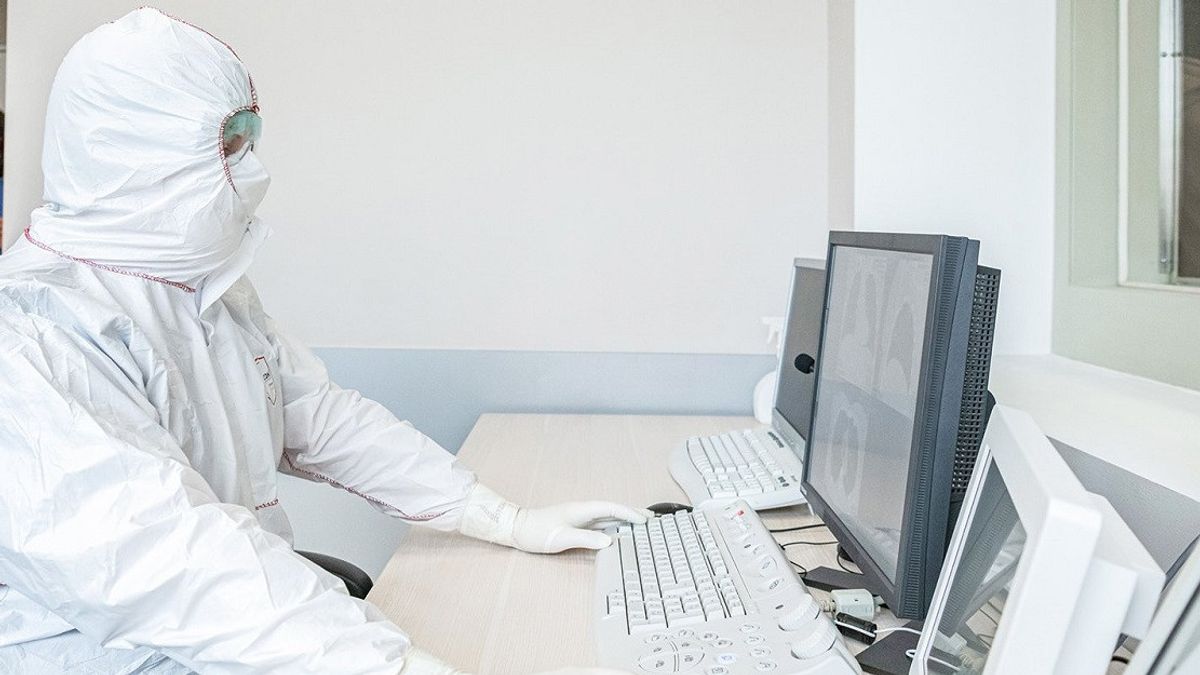JAKARTA - The Omicron variant of the coronavirus reproduces 70 times faster than the Delta variant in the human respiratory tract (bronchus), according to researchers who say their work provides the first information about how the virus infects people.
However, research from Hong Kong also showed the Omicron variant replicated less well in human lung tissue than the original strain, which they said could indicate lower disease severity.
However, the study's lead professor warned, "the overall threat from the Omicron variant is likely to be very significant."
Dr. Michael Chan Chi-wai said it was important to note "that the severity of disease in humans is determined not only by viral replication, but also by the host's immune response to infection."
The associate professor at the school of public health at the LKS School of Medicine at the University of Hong Kong (HKUMed) added: "It was also noted that, by infecting more people, a highly contagious virus can cause more severe illness and death, although the virus itself may be less severe. pathogens."
"Therefore, coupled with our recent research showing that Omicron variants can partially escape immunity from vaccines and past infections, the overall threat from Omicron variants is likely to be very significant," he explained citing The Independent December 16.
A release published by HKUMed states that researchers have succeeded in isolating the Omicron variant and using lung tissue taken for treatment of the lung, to investigate the new mutation.
They compared the Omicron variant with the original strain and with the Delta variant. The release said they found the Omicron variant "replicates more rapidly than the original Sars-CoV-2 virus and the Delta variant in the human bronchi."
The researchers said, 24 hours after infection, the Omicron variant "replicated about 70 times higher than the Delta variant and the original Sars-CoV-2 virus".
"In contrast, the Omicron variant replicated less efficiently (more than 10 times lower) in human lung tissue than the original Sars-CoV-2 virus, which may indicate a lower disease severity."
The research is currently under peer review for publication, the university said.
Regarding the results of this new study, Dr. David Strain, senior clinical lecturer at the University of Exeter, said it was unclear how the results of this lab-based work would compare to what was seen in patients.
He said: "The 70-fold increase in replication is of concern which explains the increased transmission of the virus."
"However, there is uncertainty about how the 10-fold reduction in lung infectivity in this laboratory-based study will translate to patients."
At first glance it seems good news, but if a virus can replicate 70 times faster, but infect 10 times slower, it still results in a seven-fold increase in disease risk (70 times as much virus, even with a 10-fold reduction) in its ability to enter cells. will cause the virus to overwhelm the cells).
Apart, Dr. Julian Tang, honorary professor and clinical virologist in respiratory science at the University of Leicester said the research team at the university in Hong Kong was "very experienced in investigating emerging respiratory viruses".
It said: "These new findings support what we are beginning to see epidemiologically, with rapid spread but milder disease, largely mediated by upper respiratory tract infection rather than lower respiratory tract infection."
According to him, that fits with how new viruses tend to evolve "kill less, but infect more" and it remains to be seen whether the patterns detected by the researchers "repeat across populations, globally".
The English, Chinese, Japanese, Arabic, and French versions are automatically generated by the AI. So there may still be inaccuracies in translating, please always see Indonesian as our main language. (system supported by DigitalSiber.id)








